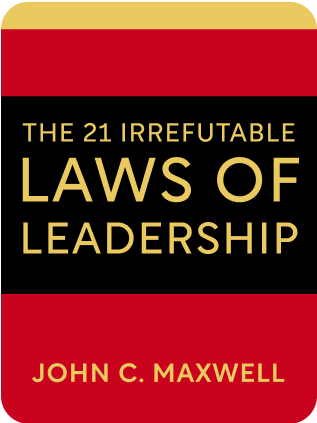

This article is an excerpt from the Shortform book guide to "The 21 Irrefutable Laws Of Leadership" by John C. Maxwell. Shortform has the world's best summaries and analyses of books you should be reading.
Like this article? Sign up for a free trial here .
What is the Law of Influence? How does influence relate to leadership? What do you think is more important in leadership—influence or rank?
The Law of Influence is the second law of leadership from John C. Maxwell. This law states that the true measure of leadership is the level of influence the leader has over their subordinates as opposed to their rank, position, or income.
Read about the Law of Influence and some real-world examples of its application.
What Is the Law of Influence?
Influence is one of the most critical qualities in a leader. If you don’t have influence, you don’t have followers, and without followers, you’re not a leader. You’re just a person with title or rank, or a person going first.
Followers consider several factors when choosing whether or not to follow (or be influenced by) a leader:
● Positive character traits (Law #6, leaders have good character). Some people are by nature sincere, diligent, and trustworthy. People tend to follow potential leaders who have admirable personalities.
● Personal connections. People who personally know a potential leader are more likely to follow them.
○ For example, when you start a new job, prioritize relationship-building with your coworkers and employees.
● Competence. Followers consider whether or not their potential leader is knowledgeable and has a plan for the future.
● Intuition (Law #8, leaders pay attention to intangibles). Is a potential leader aware of intangibles as well as quantifiable details? Consider things like morale, motivation, timing, and energy.
● Background. If a potential leader already has experience acting in a leadership position, followers are more likely to give them the benefit of the doubt.
● Track record. Has the potential leader successfully led projects before? ○ To get a track record, you need to take charge of projects. You can start small, by, for example, planning an event for your immediate family or a few friends.
● Capacity. Followers consider whether or not a potential leader will help them achieve their goals.
There are five myths about leadership related to the importance of leadership:
● Myth #1: Managers=Leaders. Managers aren’t by nature leaders. Management focuses on maintenance, such as making sure existing workflows and direction continue smoothly.
● Myth #2: Entrepreneurs=Leaders. Entrepreneurs find and pursue opportunities. They aren’t necessarily the same people who lead the project that the opportunities present.
● Myth #3: Knowledgeable people=Leaders. It’s possible to be very knowledgeable in any field but have no leadership ability.
● Myth #4: Trendsetters=Leaders. Trendsetters are simply the first people to do something. Other people may copy them, but if they’re not intentionally following the trendsetter, the trendsetter isn’t acting as a leader.
● Myth #5: Titled people=Leaders. Rank, title, or credentials are not a substitute for influence.
Leading voluntary organizations is a good test of leadership abilities because the leader has no leverage. Military leaders or bosses can pull rank or dock salaries, but volunteers are only there because they want to be. If they don’t like the leader, they don’t have to follow, they can just leave.
Example of a Successful Application of the Law: Mother Teresa
At one point, Mother Teresa was one of the most influential people in the world. A good example of her influence was when she gave a speech at the National Prayer Breakfast in 1994. She spoke about family values and abortion and offended nearly everyone in attendance, but they listened to her (instead of heckling her or leaving). People respected her because of her positive character traits, background, and track record. Most people even applauded when she was finished speaking.
Example of a Failed Application of the Law: Abraham Lincoln
Years before Abraham Lincoln became president, he put together a volunteer company for the militia. Usually, whoever organized the company took charge, so he became captain. He had title and position—unfortunately, he didn’t know anything about the military.
Lincoln once had to guide his men through a gate. He couldn’t remember any of the proper commands and ended up shouting: “This company is dismissed for two minutes, when it will fall in again on the other side of the gate.” This and other instances of his lack of military knowledge affected his influence.
Other people were more knowledgeable and confident, and their influence helped them gain rank. Lincoln’s influence decreased as time went on, and he finished his military service as a private.

———End of Preview———
Like what you just read? Read the rest of the world's best book summary and analysis of John C. Maxwell's "The 21 Irrefutable Laws Of Leadership" at Shortform .
Here's what you'll find in our full The 21 Irrefutable Laws Of Leadership summary :
- Why working with people is the only way to do meaningful work
- How to become the kind of person that can get things done
- Why you don't need to be good at all the laws of leadership to be a good leader






